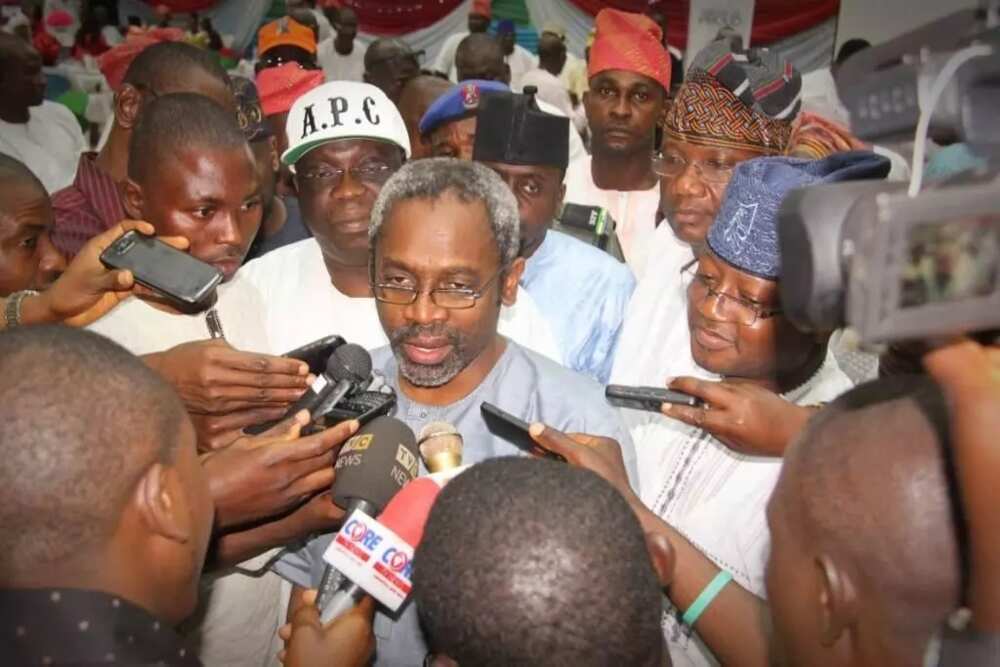Femi Gbajabiamila lead debate at the second reading of the 2017 Appropriation Bill
The majority leader of the House of Representatives, Honourable Femi Gabajabiamila today, January 24, lead the debate at the second reading of the 2017 Appropriation Bill lower house.

Gbajabiamila described the 2017 Budget as ambitious, but quickly added that ambition is the precursor to success.
He commended the Muhammadu Buhari administration for continuing to lay emphasis on diversification of the Nigerian economy particularly in the areas of agriculture and solid minerals.
''This budget is designed to expand and strengthen public/private partnership, focus on and complete ongoing infrastructural projects such as roads, rail, power , ICT that can affect the economy positively. It ensures food security and expand the agriculture value chain.
''It establishes a Social Housing Fund for a more robust mortgage system. It protects and grows small and medium scale enterprises for the purposes of innovation, job and wealth creation,'' Gbajabiamila said.
READ ALSO: Gbajabiamila describe Igbos as economically strong
Gbajabiamila also talked about the key assumptions in the 2017 Budget.
Read below:
1. REVENUE PROJECTION
Based on the key assumptions, the 2017 Budget presumes a FG revenue of 4.94 Trillion which is 28% more than the 2016 projection. Of this amount, oil is expected to supply 1.98 trillion and non oil 1.37 trillion.
2. EXPENDITURE
The budget expenditure is 7.298 trillion compared to last year’s budget 6.06 trillion. A 20% increase. 419 billion will go to statutory transfers, 1.66 trillion for debt service, 177 billion to a sinking fund for retirement of maturing bonds, 2.98 trillion to non debt recurring expenditure and 2.24 trillion to capital expenditure .
3. DEFICIT
The budget deficit for this year’s budget is 2.36 trillion, which is 2.18 % of the GDP. To finance the deficit, government proposes to borrow 1.06 trillion from external sources and 1.25 domestic borrowing. So clearly this budget has been put through a lot of thought processing and professionally designed to achieve recovery and growth.
However let me hasten to add that this is not a perfect document. There are areas I believe this budget has some shortages and deficit. One would like to see more funds injected into the Sovereign Wealth Fund, appropriation for the fixing of our refineries for optimization, reduction in overheads and recurrent expenditure.
It is time for this House to revisit the Oronsanye and Ahmed Joda Reports on the merger of government agencies so as to reduce cost of governance and free up more money from capital expenditure at a minimum of 40%.
4. CRITICISM
Tourism needs more money to help in diversification. Fixing of refineries for optimization Transport-most important in economic recovery.
Source: Legit.ng
